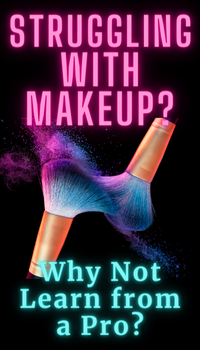TVvocalizers — “Silver Wells” by Justin Vivian Bond
 CD Review
CD Review
Justin Vivian Bond’s new project, Silver Wells, is an album of mostly cover tunes given the first person treatment more often associated with intimate club settings. The New Yorker has called Bond . . .the greatest cabaret artist of V’s generation. That’s quite an accolade, but after only one listen to Silver Wells, it’s a critique that absolutely mails the total essence of this project. The song selection on the project also makes this brief quote more than appropriate. Bond has chosen songs that not only lend themselves extremely well to a sparse, cabaret style, but also songs that have an origin and history of coming from a more theatrical setting.
I’ve tried to research each tune in order to offer some perspective on its musical significance, and perhaps understand why Bond chose these songs in the first place.
The album opens with Dues, which is penned by singer-songwriter/musician/actress Ronee Blakely. Only Bond could open an entire album with a very laid back tune and still grab your attention.
Kate Bush’s The Kick Inside from her 1978 debut album by the same title, is also given a very laid back treatment by Bond, as compared to Bush’s original version. Other tunes that are presented in a similar form are the Leonard Cohen tune Famous Blue Raincoat, and Clean White Bed, originally by the band Smoke, from their 1995 album Another Reason To Fast. The two Joni Mitchell songs on the project — Lesson In Survival, and Let The Wind Carry Me –are also laid back.
I don’t want to give the impression that all of Silver Wells is presented as slow and melancholy, though. Bond is adept at taking a solo, sparsely accompanied performance, and injecting power into the material at hand, regardless of any given song’s genre.
 Perhaps the best example of the above statement is Bond’s version of Sinner Man. This song is a traditional spiritual dating back to the turn of the 20th Century. There are several recorded versions which draw from the 1956 Les Baxter version, as well as many covers of the better known 1959 version by folk group The Weavers. In Bond’s version, the song takes on a somewhat bluesy feel, while being delivered by the most dramatic singing on the project.
Perhaps the best example of the above statement is Bond’s version of Sinner Man. This song is a traditional spiritual dating back to the turn of the 20th Century. There are several recorded versions which draw from the 1956 Les Baxter version, as well as many covers of the better known 1959 version by folk group The Weavers. In Bond’s version, the song takes on a somewhat bluesy feel, while being delivered by the most dramatic singing on the project.
One song that took me by surprise is Alabama Song, which is probably better known to most as The Doors Whiskey Bar Song, from 1966. Originally, the lyrics were penned in 1927 by Bertolt Brecht, and set to music that same year by Kurt Weil. Perhaps no other tune on Silver Wells lends itself to Bond’s cabaret style as best as this. The original version was used in the German theater of that era, and usually sung in English. Bond changes the lyrics in a few places back to their original form rather than do the Jim Morrison version. This is definitely one of Silver Wells stand out tracks.
There are two other songs on Silver Wells that also show Bond’s appreciation for the history behind good cabaret. Something Cool (written by Billy Barnes) was originally performed by Jane Christy on the album by the same name in 1954, released as a ten inch disc. This album was released again in 1955 on the twelve inch disc format, and released yet again with slightly different track listing in 1958 and 1960. Christy’s vocal is regarded as the beginning of the cool jazz singing style. Bond’s inclusion of this song is practically paying homage to an entire generation of artists who came before and created the foundation for a style still heard today.
The other historically significant track is Bond’s version of the 1936 tune Until The Real Thing Comes Along. Written by Sammy Cahn, Saul Chaplin, and L. E. Freeman, it’s been recorded by practically everybody — Billie Holiday, Fats Waller, The Ink Spots, Ella Fitzgerald, Aretha Franklin, Frank Sinatra, and even Rod Stewert. Bond’s voice is perfect for this song, since it has an almost vaudeville quality to it. If I ever get the chance to see Bond live, this is the one song I’d request. It just seems like it would be a lot of fun to hear it performed live in a small club setting.
 As a reviewer, I get to be totally subjective whenever I want. Therefore, I’m going to say that my personal favorite tune on Silver Wells is the last cut, Bond’s own song Stars. Bond plays piano on this, accompanied Maxim Moston on viola. This is a very powerful song, and is proof why Bond is held in such high regard as a live performer.
As a reviewer, I get to be totally subjective whenever I want. Therefore, I’m going to say that my personal favorite tune on Silver Wells is the last cut, Bond’s own song Stars. Bond plays piano on this, accompanied Maxim Moston on viola. This is a very powerful song, and is proof why Bond is held in such high regard as a live performer.
Silver Wells can sound very sparse at times but you’d be missing the point to think it was recorded that way in order to cut costs. The album showcases Bond’s vocal delivery, as well as V’s appreciation for music from many eras that has made for good cabaret over the years.
Silver Wells was produced by Thomas Bartlett, who also plays piano on most tracks. Along with the aforementioned Maxim Moston on viola, other musicians include Nico Muhly, piano, on Talkin’ About A Revolution, and Brad Albetta, bass, and Ray Rizzo, drums, on Patriot’s Heart.
For more information on Justin Vivian Bond, including several upcoming show dates, please check out www.justinbond.com. Bond’s music is also available on amazon.com.
NEW MUSIC
Maroon 5 Overexposed
 Maroon 5 has become one of the better known pop bands in recent years. Their newest release, Overexposed, definitely stays true to that genre, while offering a few variations in the process. Most of what is on the album works as dance material-opening track One More Night, plus Lucky Strike, The Man Who Never Lied, Fortune Teller, and Doin’ Dirt are the best examples here. Another dance track, Lady Killer is also dance material, but is vocally very reminiscent of Bee Gee’s disco era material.
Maroon 5 has become one of the better known pop bands in recent years. Their newest release, Overexposed, definitely stays true to that genre, while offering a few variations in the process. Most of what is on the album works as dance material-opening track One More Night, plus Lucky Strike, The Man Who Never Lied, Fortune Teller, and Doin’ Dirt are the best examples here. Another dance track, Lady Killer is also dance material, but is vocally very reminiscent of Bee Gee’s disco era material.
When the band heads toward rockier material, they still keep it rather light. Examples here are Day Light and Beautiful Goodbye.
The project’s single, Payphone, is yet another example of a somewhat decent pop song that has a rap inserted in the middle for no apparent reason. Maroon 5 has also just released a remix disc of versions of Payphone.
Two cuts that seem to stand out are the Sad, which is different in that it’s a piano and voice track, not a full band track, and Love Some Body, which is musically the most interesting moment on the project. The band manages to mix their unique pop sound with a more ‘80s feel.
Emeli Sandé Daddy the remixes, featuring Naughty Boy
 This remix disc features 14 versions of Daddy, which is the single from Sande’s album Our Version Of Events.
This remix disc features 14 versions of Daddy, which is the single from Sande’s album Our Version Of Events.
She has a very smooth, almost gospel sounding voice, which is most apparent on the more laid back, highly orchestrated opening track.
The most interesting cuts here are the UK Bonus mixes. The best are the Disclosure Remix, the Fred V and Grafix remix which is moderate rock, and the Ifan Dafydd remix, which is practically R&B.
Azealia Banks 1991
This four song EP is all rap/techno, and definitely dance material. Van Vogue is probably the most musical tune, while being more mainstream club material. 212 is the only cut on this EP that actually showcases Banks as a singer with an interesting voice, capable of more than rap when she wants to.
Category: Music










